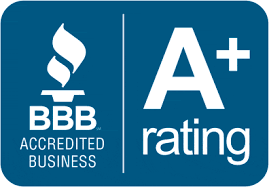There are few times in life as emotional as the death of a loved one. That goes for both individuals and families. In the aftermath of a death and funeral, the process of probating (also called administering or settling) the Estate of the departed is tough to face. If a person who died (decedent) and his or her loved ones had not previously planned how to handle the estate, the process can be particularly tough. It's important to learn some of the basics of probating an estate before facing that monumental task. That's whether a person handles it without a lawyer, or retains counsel to act as the attorney for the estate during the probate process.
The first step in administering an estate is filing an application to open an estate with the local county probate court. If the decedent previously executed a Last Will and Testament, the loved one with the original copy of that Will files it with probate for a "testate" estate. In that event, the property of the decedent will be distributed by the terms of the Will. If there is no known Will, the estate is considered "intestate" and the property of the estate is distributed by state law. The primary thing to understand about intestate laws in South Carolina is that half of the decedent's property will go to his spouse and a half to any living children. If there are no living children, all goes to the surviving spouse. In the event of no surviving spouse, the children take all in equal shares (the laws go beyond into those who have no spouse or children, so speak to a lawyer about those circumstances). For all estates, any valid creditors receive what is owed by the decedent before distribution to devisees (in the case of a Will) or heirs (in the case of no Will).
Along with filing an application for opening an estate, the person wishing to administer the estate will apply as "Personal Representative (PR)" (note: Formerly, this was called "executor" for males and "executrix" for females). The judge will appoint the PR based first on who the decedent requested in his Will, and in the event of no Will, certain classes have higher priority. For example, a spouse has the highest priority, then children. This can be contested among family members for various reasons, and can lead to a contested hearing for the judge to determine PR. Once the judge appoints a PR, that person has fiduciary duties to those with interests in the estate to follow state law. This is a good time to consider hiring an estate attorney (note: by state law the estate attorney can be paid from the estate off the top).
The PR has to follow the legal deadlines in administering the estate, and account for his actions to all the beneficiaries of the estate. The first action of the PR is to give notice to creditors of the death and estate, and provide eight months for creditors to make a claim. Within 90 days of being appointed PR of the estate, the PR must provide an "inventory and appraisement" of everything in the estate that he has reasonable knowledge of being part of the estate. He has the duty to reasonably safeguard that property, both real estate and personal property, while administering the estate. This is another good reason to hire an attorney to handle this substantial task. Those with interests in the estate, as well as the Probate Court, must receive the inventory and appraisement. During the 8-month "creditor" period, the PR may be handling other duties related to the estate, like upkeep of real estate or even sale of real estate (with proceeds going into the estate). The PR is allowed to use funds from the estate for the reasonable expenses related to the estate, like paying taxes, insurance, and attorney/accounting fees.
When the creditor period is over, the PR can begin the process of closing the estate. In some cases, due to estate administration events, like waiting for the sale of a home, the closing of the estate may be months or even years after the creditor period. To close the estate in SC, the PR must file an "accounting" of the estate with the Probate Court, and send copies of the accounting to all beneficiaries of the estate. This accounting shows what was spent from the estate for maintenance of the estate, and distribution of the estate to beneficiaries. The beneficiaries are given notice of a right to a hearing over the why the estate was administered, including the distribution, and if requested the Court must allow the person to argue in disagreement over the administration and/or accounting. Assuming nobody objects to the accounting and distribution, the estate is closed by the Probate judge, releasing the PR.
Most should hire an attorney to prevent all the many problems that can arise from incorrect administration. The liability of the PR is substantial, and the involvement of an attorney at the beginning can save a great deal of time, money, and even liability. The Bill Connor Law Firm specializes in estate administration, and stands ready to help.
Need an Attorney?
The Bill Connor Law Firm can help
Call: 803 937 5571

CALL NOW! 803-937-5571






